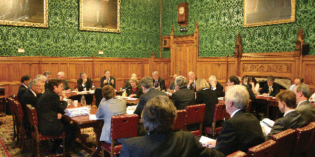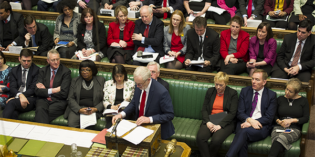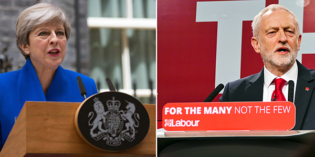Tag: Patrick Dunleavy

How effective are the Commons’ two committee systems at scrutinising government policy-making?
In addition to their floor debates, a crucial role of legislatures is to scrutinise government law-making and policy implementation. The House of Commons looks at legislation via bill committees, and its select committees cover each of the Whitehall departments to scrutinise implementation. As part of the 2018 Audit of UK Democracy, Patrick Dunleavy and the Democratic Audit team consider how well current processes maintain parliamentary knowledge and scrutiny of the central state in the UK and England.

How democratic is the House of Commons? How effectively does it control the UK government and represent citizens?
How well does the House of Commons work via floor debates, questions to ministers and as a general means of scrutinising and passing legislation, and monitoring policy implementation? Has the return of a hung parliament since 2017 changed how the House of Commons functions as a legislature? As part of our forthcoming 2018 Audit of UK Democracy, Artemis Photiadou and Patrick Dunleavy consider if the traditional model of Parliament as primarily supporting a showcase political clash of government and opposition has changed to make the Commons a more effective focus of national debate or to create stronger control of the executive.

How democratic is the interest group process in the UK?
Between elections, the interest group process (along with media and social media coverage) is a key way in which citizens can seek to communicate with their MPs and other representatives, and to influence government policy-makers. For the 2018 Audit of UK Democracy, Patrick Dunleavy considers how far different social groups can gain access and influence decision-makers. How democratically does this key form of input politics operate? And how effectively are all UK citizens’ interests considered?

How democratic are the UK’s political parties and party system?
For our 2018 Audit of UK Democracy, Patrick Dunleavy and Sean Kippin examine how democratic the UK’s party system and political parties are. Parties often attract criticism from those outside their ranks, but they have multiple, complex roles to play in any liberal democratic society. The UK’s system has many strengths, but also key weaknesses, where meaningful reform could realistically take place.

How democratic are the reformed electoral systems used in Britain’s devolved governments and English mayoral elections?
As part of our 2018 Audit of UK Democracy, Patrick Dunleavy and the Democratic Audit team examine how well citizens are represented by the two main reformed electoral systems used in the UK – the ‘additional members system’ (AMS) and the ‘supplementary vote’ (SV). How successful have they been in showing the way for more modern electoral systems to work well under British political conditions?

How democratic is the Westminster ‘plurality rule’ electoral system?
In the first part of our 2018 Audit of UK Democracy, Patrick Dunleavy examines a topic of foundational importance for any liberal democracy – how well does the electoral system (in this case the Westminster plurality rule, aka ‘first-past-the-post’) convert votes into seats? A sudden growth in two-party support in 2017 allowed the UK’s ancient voting system to work far more proportionately. But is this outcome a one-off blip, or the start of a new long-term trend?

Grenfell’s lessons for democracy: listen to our podcast
On 12 October the author Lynsey Hanley, Conservative London Assembly Member Shaun Bailey, Prof Colin Copus, Prof Patrick Dunleavy and campaigner Clare Coatman launched our 2017 Audit of UK Democracy at the LSE with a discussion of the Grenfell Tower fire. What lessons does the disaster hold for the way local government functions, for regulation […]

Join us at the LSE for the launch of our 2017 Audit of UK Democracy
On Thursday 12 October at 6.30pm Democratic Audit is launching our 2017 Audit of UK Democracy at the LSE with a discussion of the Grenfell disaster’s lessons for local government, public housing and social justice. Speakers include Lynsey Hanley, the author of Estates: An Intimate History, Prof Colin Copus and Prof Patrick Dunleavy, the co-director of Democratic […]

Audit 2017: How effective is the Westminster Parliament in scrutinising central government policy-making?
The House of Commons is one of the oldest and foremost legislatures in the world – yet in the past it was also a byword amongst political scientists for weak legislative control of government. Recently some revisionist authors have painted a more active picture of MPs’ influence. As part of our 2017 Audit of UK […]



 Democratic Audit's core funding is provided by the Joseph Rowntree Charitable Trust. Additional funding is provided by the London School of Economics.
Democratic Audit's core funding is provided by the Joseph Rowntree Charitable Trust. Additional funding is provided by the London School of Economics.